---------------------------------------------------------
The days are getting shorter and there is a definite chill in the air. Before long the leaves will be dropping and winter coats will be coming out of storage. Your flock is preparing for their winter coats as well. It starts gradually – one day you notice extra feathers in the corners of the coop or run, the next day you think the girls are looking a little ragged around edges and there is a noticeable lack of eggs in the nest box. Before you know it the whole flock looks like they got in a bar fight and there are feathers EVERYWHERE. So what can you do to help the flock through molting season?
Keep up the high quality feed
They might not be laying eggs as regularly as usual but molting can be stressful to their system. Egg production drops because they are using all of their resources to make new feathers. You should eliminate scratch and other “filler” feed to ensure they are eating enough high quality layer feed. Did you know feathers are made of 85% protein? You can also offer some high protein snacks like meal worms, black oil sunflower seeds, scrambled eggs or try our Chicken Comfort Food
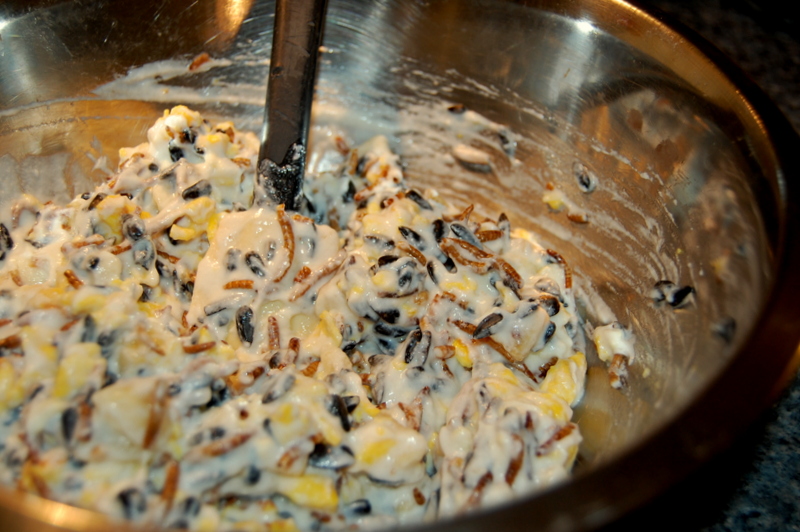
Avoid Stress & Handling
You should avoid adding stress to their life (not a good time to introduce new chickens). Handling can also be stressful to them. As humans we want to hug away the hurt, but not only is handling during molting stressful, it is also painful. The new feather shafts (pin feathers) are very sensitive and can be painful when touched. If the pin feathers are damaged, they can bleed profusely. The blood can attract bully birds so the injured bird should be removed from the flock until she recovers.
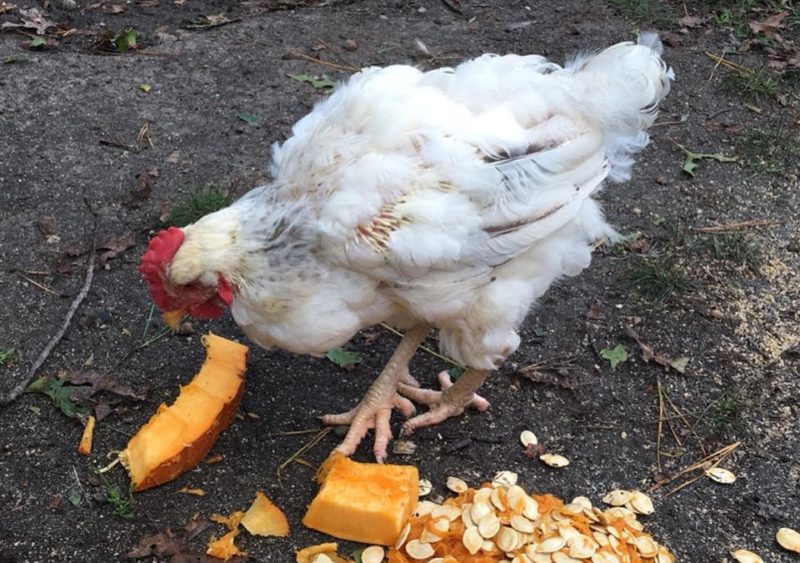
How long does molting take?
The length of time will vary from bird to bird. Some breeds are heavy molters (like frizzles). Some years a bird might have a light molt followed by a heavier molt the next year. Expect molting to take anywhere from 3-12 weeks and maybe sometimes even a little longer in a really heavy molt. It is normal for egg production to slow way down or even stop, but they should be acting normal. If anyone is acting sick you should investigate other causes for the feather loss like parasites. Chickens typically molt in early fall, this annual molt is brought on by the diminishing daylight hours. Molting can take place at other times during the year however, and can be brought on by stress. Common causes include lack of water or food, stressful flock dynamics (bullies), and sometimes after raising chicks as they re-enter flock life.
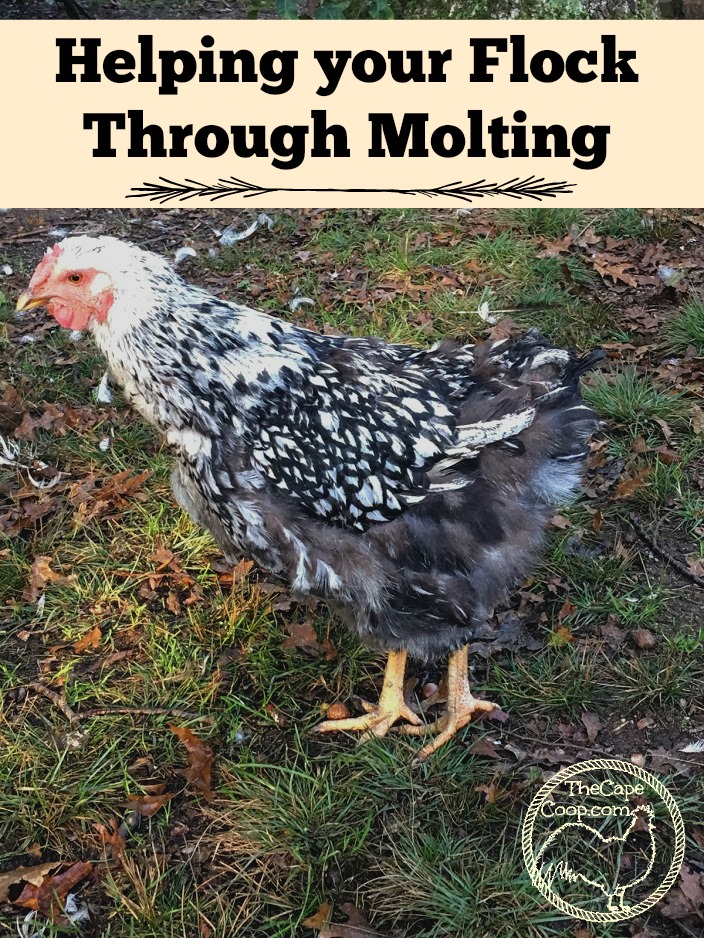
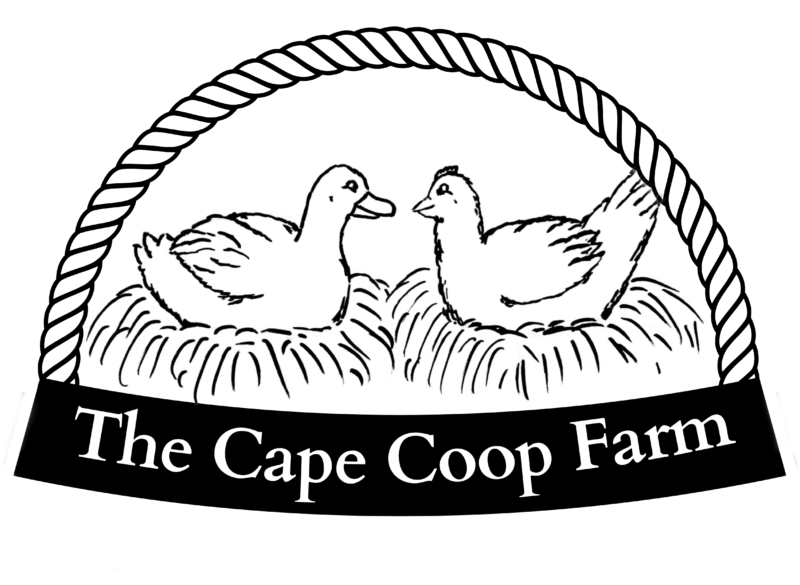
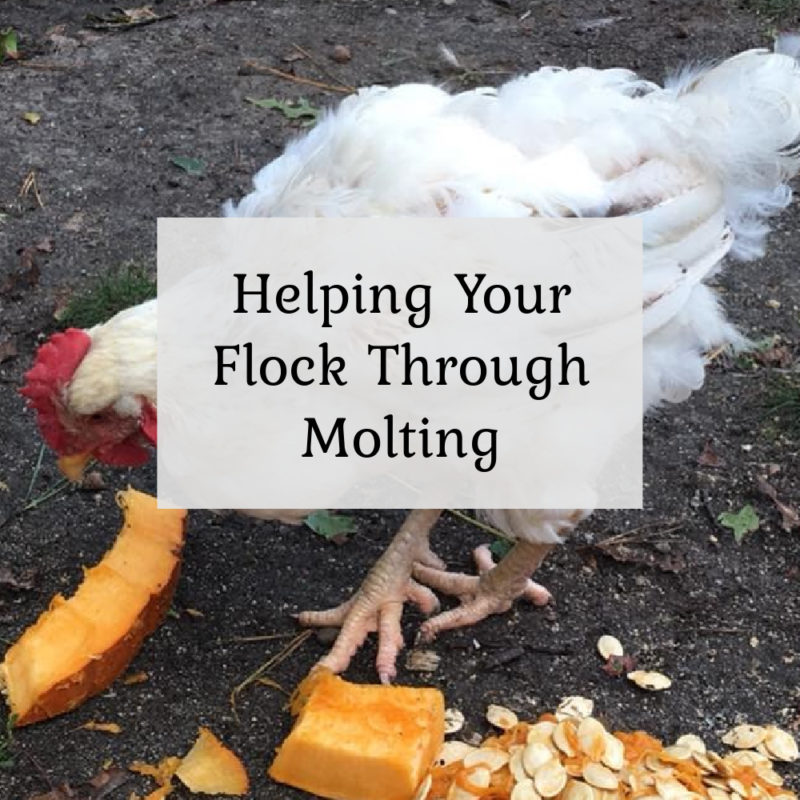
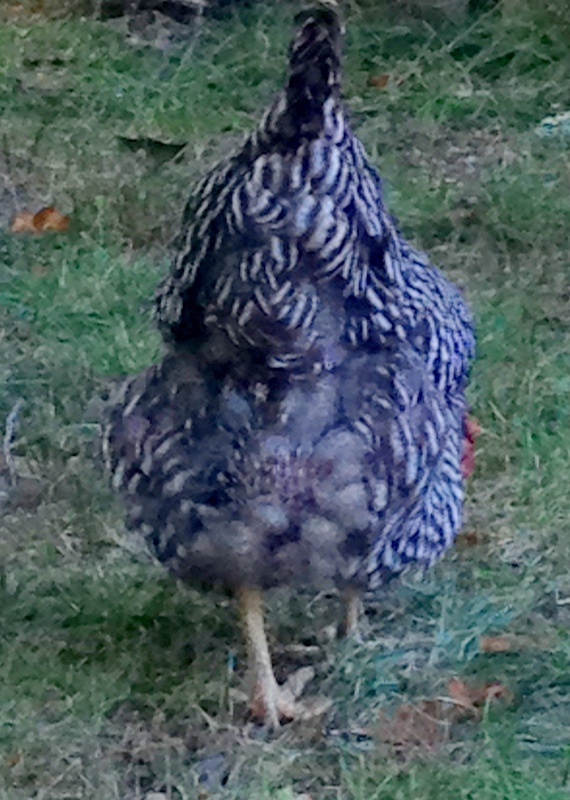
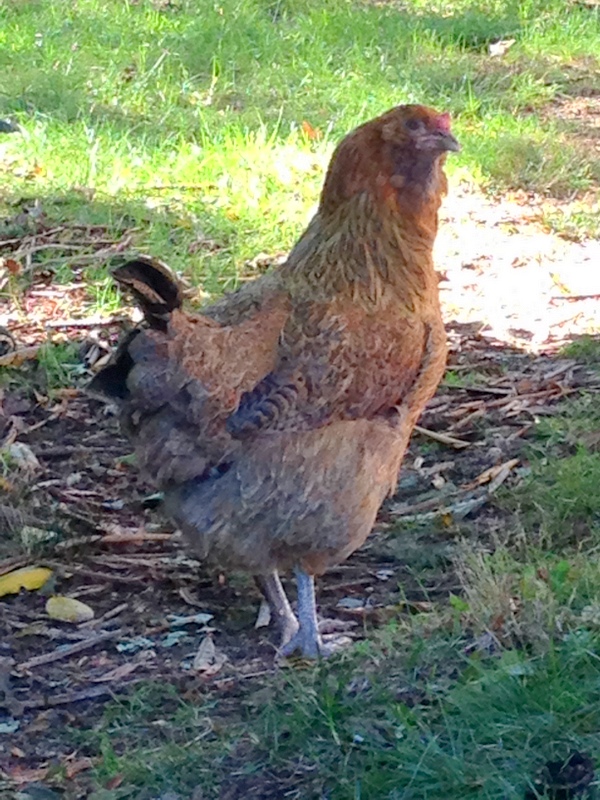
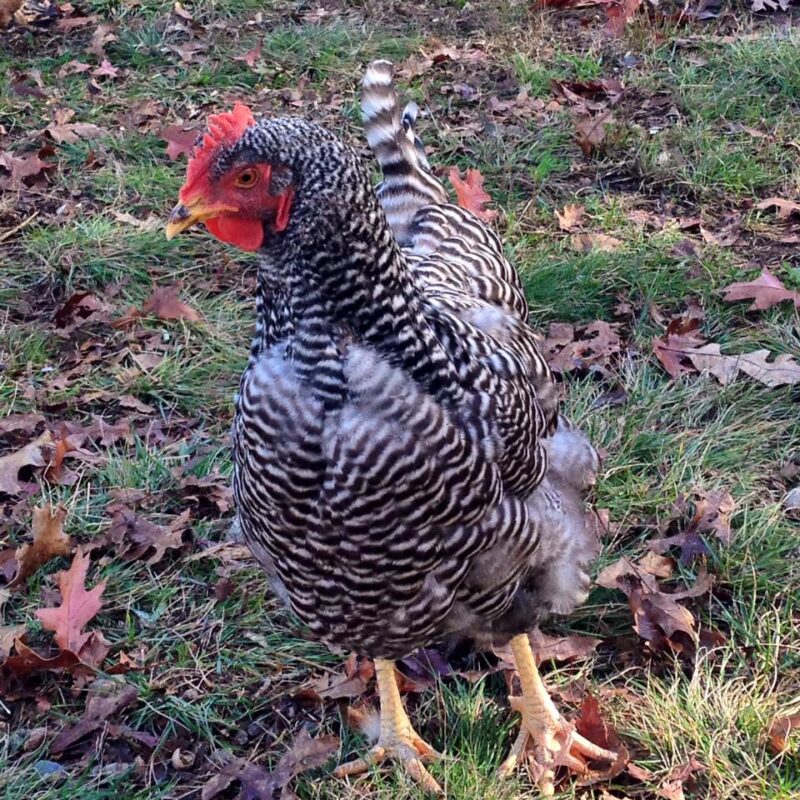
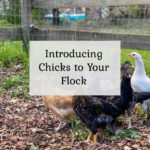
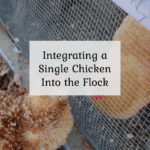
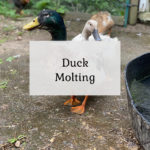
Amy
Wednesday 18th of March 2020
Hi my one of my chickens has molted some of her feathers on her neck she’s grown back a few but not many and it’s been like that for a couple of months now - she’s acting fine, I don’t think she’s being pecked as she appears to be at the top of the order, she’s eating and still laying - is this normal? Thanks Amy
Liz
Wednesday 18th of March 2020
It definitely can take some time for them to grow back sometimes. I've noticed when my chickens lose feathers at non-molting time they sometimes just have a bare patch until the big fall molt comes around. I would check her for mites, but if she is acting normal and eating & drinking as normal, I wouldn't be too concerned. You could check at your local feed store and see if they have any feather fixer feed or treats. They are usually high in protein to help support healthy feather growth
Jilly
Monday 10th of September 2018
I'm raising 10 little girls that I rescued from batter unit. They are staring to get feathers ( they had hardly any when i got them 6 weeks ago) so I am worried about them starting to moult the few they have. What can i do to help ? They are free reange and have a mixed grain / layer mash mix.
Thanks , Jilly
Liz
Monday 10th of September 2018
If they are just regrowing their feathers it is very likely they will skip molting this year. If they do, it will be a really light molt. There isn't much you can do to stop them if they start molting. Definitely give them lots of quality feed & meal worms or other bugs to help with their protein - and follow my suggestions above! :)